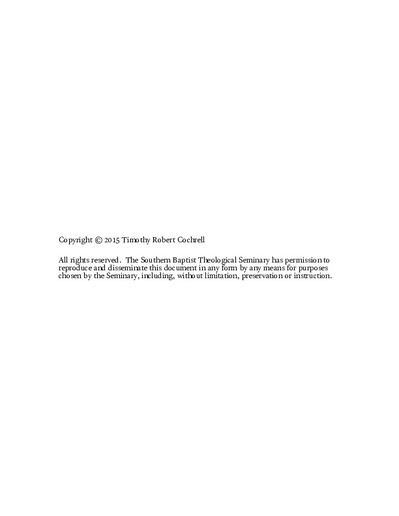| dc.description.abstract | This dissertation proposes that secular paradigms of servant leadership, rooted in the writings of Robert Greenleaf, are deficient theologically based on their humanistic presuppositions and deficient biblically based on their misunderstanding of the biblical language of service. This study proposes a model of slave leadership articulated in seven principles which are rooted in the slave language employed in Luke-Acts.
First, the slave leader becomes God's own possession through redemption and therefore the leader belongs to God and is placed under the Lord's absolute authority. Second, the leader's identity is found exclusively in his relationship to the Master which entails great responsibility as the leader represents God in his service. Third, a slave leader exercises delegated authority from the Master, therefore his words and actions carry weight, not because of who he is, but because of whom he serves. The leader is both in authority and under authority, accountable to the master and responsible for the people he serves.
Fourth, the slave leader focuses on pleasing the Master by subordinating his own will to that of the Master. The slave leader is expected to internalize the will of the Master so that he demonstrates the character and priorities of the Master in every leadership situation, even in the absence of explicit commands. Fifth, the leader as slave is compelled to give complete and unconditional obedience to God as Master. The leader may not pick and choose which of the master's commands to obey. The faithful slave carries out the will of the master, calling Him Lord and living it out. Sixth, just as a slave was entirely dependent upon the master for provision and direction, so a slave leader is constantly dependent upon the Lord and His indwelling presence for empowerment and discernment. Finally, the slave may be susceptible to abuse or mistreatment as a result of his unconditional obedience to the Master's will. | en_US |

